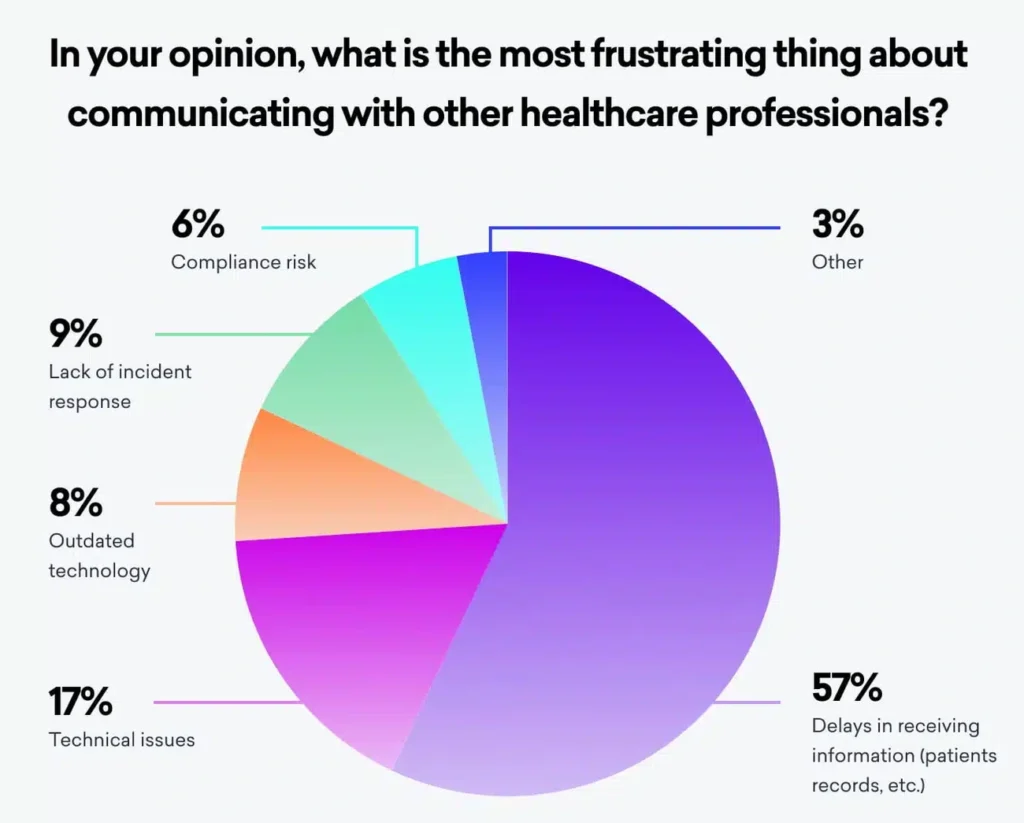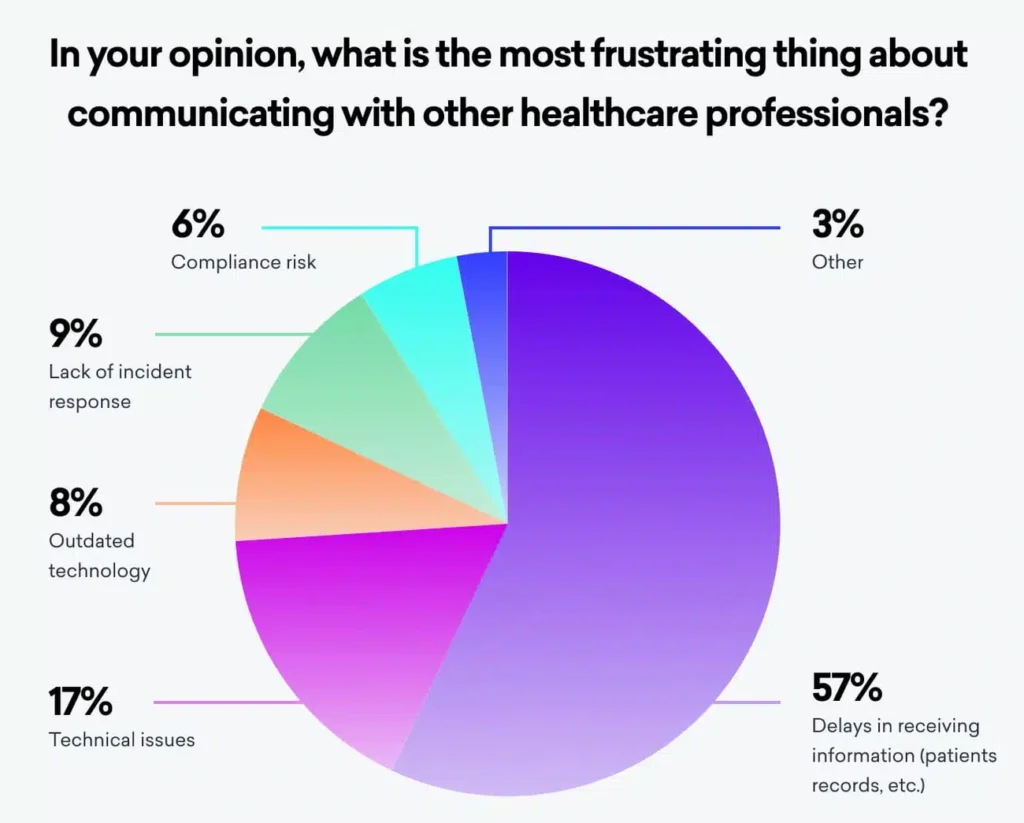
Are you wondering what makes a good medical assistant in today’s evolving healthcare landscape? Career satisfaction often comes from matching your natural abilities with the right profession.
Healthcare facilities increasingly depend on skilled medical assistants who serve as the backbone of efficient patient care. According to the Bureau of Labor Statistics, medical assisting jobs are projected to grow 16% by 2030, much faster than average for all occupations. This growth, coupled with expanding responsibilities in modern healthcare settings, makes it an excellent time to consider this rewarding career path.
Before diving into extensive training programs or certification courses, it’s worth examining whether your natural strengths align with what the role demands. In this article, we’ll explore five definitive signs that indicate you might be perfectly suited for a career as a medical assistant in 2025. These qualities go beyond basic skills and highlight the core attributes that truly exceptional medical assistants possess.
You Thrive On Helping Others

If you find genuine satisfaction in helping others, you may have discovered the most fundamental trait of what makes a good medical assistant. The desire to assist those in need isn’t just a pleasant personality feature—it’s backed by science as a powerful component of effective healthcare.
Empathy and compassion in medical assisting
Empathy in healthcare encompasses three dimensions: emotional, cognitive, and behavioral 1. It’s the ability to understand patients’ experiences without becoming emotionally entangled with them. Medical assistants with strong empathetic abilities operate more efficiently in their roles, particularly when eliciting therapeutic change 1.
For medical assistants, empathy means:
- Recognizing patients’ emotions and concerns
- Understanding their perspective
- Responding appropriately to their needs
- Communicating compassionately during vulnerable moments
Research confirms that health professionals with higher empathy levels experience less burnout and depression 1. Additionally, empathy helps medical assistants precisely assess patients’ situations by enabling them to interpret non-verbal cues and manage emotions effectively 1.
How helping others builds patient trust
When patients feel that healthcare providers understand their condition and apprehensions, they become more comfortable confiding in them 2. This trust-building process is therapeutic and may facilitate healing 2. Indeed, studies have demonstrated that empathy is directly therapeutic by reducing anxiety in patients 2.
The trust developed through empathetic interactions strengthens cooperation between medical assistants and patients. This collaboration is essential when designing personalized therapeutic plans, ultimately increasing patient satisfaction 1. Furthermore, patients who experience empathy during treatment show better results and higher potential for improvement 1.
Medical assistants serve as the first point of contact for many patients, often during moments of vulnerability. By communicating clearly and empathetically, they ensure patients feel heard and understood 3. Consequently, this creates a foundation of trust that enhances the entire healthcare experience.
Why this trait is essential in 2025 healthcare
In 2025, compassion has been identified as a transformative force in primary healthcare, driving quality care and system transformation 4. The World Health Organization recently highlighted that compassion—characterized by awareness, empathy, and action—serves as a catalyst for systemic change 4.
Nearly 50% of Americans believe our healthcare system and providers lack compassion 5. Meanwhile, compassion is present in less than one percent of all communications during routine office visits, with physicians missing approximately 70% of opportunities to demonstrate compassion 5.
This compassion deficit is particularly significant as healthcare continues to prioritize patient-centered approaches. Medical assistants with strong interpersonal abilities will play an even greater role in creating positive care experiences 6. In fact, compassion and connection must be built deliberately through every interaction 7.
The medical field is becoming increasingly globalized, making Cultural Intelligence (CQ) a must-have skill. This ability to understand and adapt to cultural differences ensures patients from diverse backgrounds feel respected and cared for 6. As a result, medical assistants who combine empathy with cultural awareness will be particularly valuable in 2025’s healthcare environment.
Most compelling evidence shows that it only takes 40 seconds for a healthcare provider to communicate compassion effectively 5. This small investment of time can yield significant returns in patient outcomes, satisfaction, and trust—making empathy not just a nice-to-have quality but an essential component of what makes a good medical assistant in today’s healthcare landscape.
You Communicate Clearly and Confidently

Clear communication stands as a cornerstone skill that distinguishes exceptional medical assistants from average ones. Beyond basic interpersonal abilities, the capacity to convey information precisely and confidently creates the foundation for quality healthcare delivery.
Communication skills for medical assistants
Effective communication in healthcare settings involves more than just exchanging information—it establishes therapeutic relationships that significantly benefit patient-centered outcomes 3. For medical assistants, this requires mastering several essential skills:
- Active listening: Paying complete attention to patients, nodding appropriately, and providing verbal cues that demonstrate understanding 8
- Clear instructions: Using plain language instead of medical jargon when explaining procedures or care directions 9
- Cultural competence: Recognizing and respecting diverse cultural beliefs that influence healthcare decisions 10
- Nonverbal communication: Maintaining appropriate eye contact, body language, and facial expressions that convey engagement—approximately 55% of communication is through body language, 38% through tone of voice, and only 7% through actual words spoken 8
Emotional intelligence also plays a vital role in how medical assistants communicate. This includes self-awareness, self-regulation, empathy, and social skills—all critical components for fostering compassionate and patient-centered care 10.
Examples of effective patient interaction
Successful medical assistants adapt their communication approach based on whom they’re speaking with. For instance, they might use a softer voice with reassurance for young children while maintaining a more direct approach with adults to avoid sounding condescending 6.
Building rapport represents another crucial aspect of patient interaction. Simple gestures like greeting patients warmly, remembering their names, and referencing past medical history create trust and comfort 6. Studies show that patients are more likely to share important health information openly when they feel at ease 6.
Moreover, effective communication involves clarifying and summarizing what patients say. After a patient describes symptoms, a skilled medical assistant might reflect back: “So, you’ve been experiencing frequent headaches and dizziness for the past week?” This confirms understanding and allows patients to correct any misinterpretations 6.
How communication impacts healthcare outcomes
The quality of communication between healthcare providers and patients directly influences numerous patient-centered outcomes 3. Poor communication contributes to over 60% of all hospital adverse events in the USA 11, highlighting its critical importance.
Specifically, effective communication leads to:
- Enhanced patient satisfaction and trust in providers 3
- Improved adherence to treatment plans 3
- Shorter hospital stays 3
- Reduction in medical errors 11
- Better mental and physical health outcomes 3
Research confirms that strategies focused on providing patients with clear biomedical and psychosocial information, characterized by receptivity and trust, correlate with significant improvements in patient health 3.
On the contrary, ineffective communication results in misunderstandings that lead to misdiagnosis, suboptimal treatments, and sometimes life-threatening complications 11. The UK health ombudsman cited poor communication as a cause of 48,000 avoidable sepsis deaths annually 11.
Essentially, medical assistants who communicate clearly and confidently serve as vital bridges between patients and other healthcare professionals, ultimately creating an environment where high-quality care can flourish.
You’re Detail-Oriented and Precise

Precision in healthcare isn’t merely a preference—it’s a requirement that can affect patient outcomes. Medical assistants with meticulous attention to detail form the backbone of reliable healthcare delivery, catching potential issues before they become problems.
Attention to detail in clinical and admin tasks
Medical assisting demands precision across numerous tasks daily. In clinical settings, accuracy is paramount when:
- Recording vital signs and patient information
- Administering medications and tracking dosages
- Preparing specimens for laboratory testing
- Sterilizing equipment and maintaining supplies
- Documenting patient interactions and treatment
On the administrative side, precision manifests through error-free scheduling, accurate coding and billing, and thorough record-keeping. Notably, medical assistants often serve as the final checkpoint before information enters permanent health records—a responsibility that requires exceptional focus.
Detail-oriented medical assistants develop systems to manage information accurately. They double-check their work, create checklists, and establish verification routines. These habits eventually become second nature, enabling them to maintain high standards even during hectic periods.
Common mistakes avoided by detail-oriented MAs
Even minor errors in healthcare settings can have serious consequences. Careful medical assistants help prevent:
Medication errors, which affect nearly 7 million patients annually in the U.S. These errors account for approximately 9.7% of all medical errors. Remarkably, attention to detail regarding medication names, dosages, and administration times can prevent many of these incidents.
Documentation mistakes represent another critical area where precision matters. Approximately 65% of medical malpractice cases involve documentation errors. Thorough medical assistants verify patient identities, check spelling of medications, and confirm diagnostic codes.
Scheduling mishaps may seem minor compared to clinical errors, but they substantially impact patient satisfaction and clinic efficiency. About 30% of patients report frustration with appointment scheduling issues. Methodical medical assistants who track appointments carefully help prevent these problems.
Why precision matters more than ever in 2025
Healthcare is becoming increasingly complex. Subsequently, the need for precision has grown proportionally. Several factors make attention to detail more crucial than ever:
First, electronic health records (EHRs) now permanently document all interactions. Errors in these systems can follow patients throughout their care journey, potentially leading to misdiagnoses or treatment issues.
Second, emerging precision medicine tailors treatments to individuals based on genetic, environmental, and lifestyle factors. This approach requires exceptionally accurate data collection and recording.
Third, regulatory requirements continue to tighten. Healthcare facilities face substantial penalties for compliance failures, many of which stem from documentation errors or improper procedures.
Fourth, patient expectations have risen dramatically. With greater access to their own health data, patients quickly notice discrepancies or mistakes—making accuracy essential for maintaining trust.
Finally, the integration of artificial intelligence in healthcare depends on accurate data inputs. Medical assistants who ensure precise documentation ultimately contribute to better machine learning outcomes that benefit future patients.
Forthwith, detail-oriented medical assistants will remain in high demand as healthcare evolves, with their precision skills becoming increasingly valuable in an industry where the margin for error continues to shrink.
You Stay Calm and Adaptable Under Pressure

Healthcare environments inherently contain unpredictable elements, making adaptability a defining characteristic of exceptional medical assistants. When faced with high-pressure situations, the ability to remain composed while adjusting to changing circumstances separates truly effective medical assistants from those who merely perform basic duties.
Adaptability in fast-paced medical environments
Medical assisting requires responding to misalignments between demands and available resources. These challenges often stem from staffing shortages, limited equipment access, disrupted processes, or insufficient information sharing 12. Healthcare facilities face constant pressure to change due to technological advances, shifting patient demographics, and evolving medical practices 13.
Despite these challenges, adaptable medical assistants demonstrate flexibility by:
- Managing fluctuating patient volumes effectively
- Navigating unexpected challenges with composure
- Adjusting to evolving healthcare trends and technologies 14
- Modifying their approach based on each unique situation 15
The healthcare landscape continues evolving, with traditional decision-making processes being dismantled in favor of fast-track paths to action 16. Consequently, medical assistants must develop both short-term and long-term adaptation strategies to thrive in this environment.
Real-world examples of staying calm under stress
When emergencies arise, medical assistants often experience physiological stress responses—increased heart rate, elevated blood pressure, and heightened mental focus 17. Rather than viewing these reactions negatively, successful medical assistants reframe them as performance enhancers.
In high-pressure situations, effective medical assistants:
- Practice focused breathing techniques to maintain composure
- Recognize their personal stress responses without judgment
- Utilize clear, low-pitched communication to help calm anxious patients 18
- Step back momentarily when possible to reset their stress reaction 18
A particularly powerful example involves medical assistants who recognize when to adapt staffing and patient allocations throughout the day based on staff experience and patient acuity 19. This demonstrates both quick thinking and patient-centered care.
How adaptability supports patient care
Adaptable medical assistants directly enhance patient outcomes through their flexibility. Research shows that thoughtful long-term adaptations often involve reorganizing practices and processes to better coordinate care 12. Yet, short-term adaptations—such as taking on additional responsibilities during peak times—remain equally valuable for maintaining quality care during unexpected situations 12.
Nevertheless, relying too heavily on short-term fixes without addressing systemic issues can mask underlying problems and potentially create barriers to resilience in healthcare 12. Therefore, balancing immediate solutions with long-term improvements represents a critical skill for medical assistants.
In 2025’s healthcare environment, where facilities must quickly respond to various pressures, medical assistants who demonstrate adaptability through critical thinking and resourcefulness will contribute significantly to enhanced patient experiences 20.
You Uphold Professionalism and Integrity
Image Source: Hunter Business School
Beyond the technical skills and personal attributes, what ultimately defines exceptional medical assistants is their commitment to professional standards and ethical integrity. The healthcare field holds practitioners to higher standards than many other industries, with good reason.
What professionalism looks like in medical assisting
Professionalism in medical assisting encompasses both appearance and behavior. Professional medical assistants maintain a neat, clean appearance with appropriate scrubs, minimal jewelry, and visible identification badges 10. However, professionalism goes far deeper than appearance—it’s reflected in your conduct toward patients, colleagues, and the medical institution itself.
The American Association of Medical Assistants (AAMA) establishes ethical standards through its Code of Ethics, which requires members to pledge themselves to render service with dignity, respect confidentiality, uphold professional principles, continually improve their knowledge, and participate in community health activities 21. Likewise, the NCCT Code requires honesty in all professional interactions and taking responsibility for mistakes 22.
The role of integrity in patient confidentiality
Integrity in healthcare primarily manifests through maintaining patient confidentiality. Medical assistants regularly access sensitive patient information and must protect this data both legally and ethically. HIPAA compliance serves as a baseline, but professional standards establish an even higher bar 23.
Patient trust depends largely on confidentiality protection. When medical assistants handle patient information appropriately, they build trust essential for effective healthcare delivery. Notably, healthcare workers must never share confidential information outside the office or discuss patient details with family or friends 24.
Why ethical behavior is non-negotiable
Ethical behavior fundamentally affects patient outcomes. Research shows that unprofessional behaviors result in increased surgical site infections, higher readmission rates, more medical complications, and greater psychological harm to patients 25. Simply put, professionalism isn’t just about appearances—it directly impacts health outcomes.
At its core, ethical practice requires acknowledging errors, reporting unethical behavior, and maintaining consistent standards regardless of personal circumstances 26. Medical assistants must place patients’ best interests at the center of all their actions 27. Above all, medical assistants make ethical decisions that respect humanity, follow the law, protect patient privacy, and adhere to professional standards 22.
As healthcare grows increasingly complex, upholding professionalism and integrity becomes not just admirable—but absolutely necessary for anyone asking what makes a good medical assistant in today’s medical environment.
Conclusion
As healthcare continues to evolve rapidly toward 2025, medical assisting stands out as a career path with exceptional growth potential and meaningful impact. The signs outlined above serve as reliable indicators of your natural fit for this rewarding profession. Certainly, those who genuinely enjoy helping others bring the compassion and empathy necessary to create healing relationships with patients during vulnerable moments.
Clear communication skills similarly form the backbone of effective healthcare delivery, preventing errors and ensuring patients fully understand their care instructions. Meanwhile, your meticulous attention to detail might save lives when managing medications, documentation, or laboratory specimens—areas where precision cannot be compromised.
Healthcare environments often present unexpected challenges, therefore adaptability remains crucial. Medical assistants who maintain composure while efficiently adjusting to changing circumstances contribute significantly to smooth clinic operations and positive patient experiences. Additionally, unwavering professionalism and integrity establish the foundation of trust that healthcare fundamentally requires.
The healthcare field will undoubtedly continue transforming through technological advancements, demographic shifts, and evolving care models. These five characteristics—compassion, communication, precision, adaptability, and integrity—will become even more valuable as medical assistants take on expanded responsibilities in tomorrow’s healthcare teams.
Before pursuing certification or training programs, take time to honestly assess your natural inclinations against these five indicators. Medical assisting offers tremendous opportunities for those whose personal attributes align with the profession’s demands. Your natural strengths, combined with proper training, can launch a fulfilling career where you make meaningful differences in patients’ lives every day.
References
[1] – https://pmc.ncbi.nlm.nih.gov/articles/PMC7151200/
[2] – https://journalofethics.ama-assn.org/article/role-empathy-medicine-medical-students-perspective/2007-06
[3] – https://bmchealthservres.biomedcentral.com/articles/10.1186/s12913-023-09869-8
[4] – https://www.who.int/news/item/07-02-2025-new-who-document-highlights-the-role-of-compassion-in-primary-health-care
[5] – https://postgraduateeducation.hms.harvard.edu/insights/all-insights/measuring-benefits-compassion-healthcare
[6] – https://www.athenacareers.edu/building-strong-patient-relationships-communication-skills-for-medical-assistants/
[7] – https://info.pressganey.com/press-ganey-blog-healthcare-experience-insights/compassion-culture-connection
[8] – https://www.ncbi.nlm.nih.gov/books/NBK599382/
[9] – https://rosseducation.edu/new-students/communication-strategies-for-effective-patient-interaction.php
[10] – https://www.athenacareers.edu/importance-of-professionalism-in-medical-assisting/
[11] – https://pmc.ncbi.nlm.nih.gov/articles/PMC11131125/
[12] – https://pmc.ncbi.nlm.nih.gov/articles/PMC8325788/
[13] – https://www.simbo.ai/blog/the-importance-of-adaptability-in-healthcare-facility-design-for-meeting-evolving-patient-needs-and-technological-advances-1097395/
[14] – https://nwsc.edu/6-essential-skills-for-success-as-a-medical-assistant-unlock-your-potential/
[15] – https://www.allenschool.edu/thinking-about-a-career-in-healthcare-look-at-medical-assistant-skills-attributes/
[16] – https://citoday.com/articles/2020-july-aug/adaptability-as-a-permanent-attribute-of-health-care
[17] – https://www.aacn.org/blog/staying-calm-during-a-crisis-managing-yourself-in-an-emergency
[18] – https://www.amnhealthcare.com/blog/nursing/travel/effective-calming-techniques/
[19] – https://pmc.ncbi.nlm.nih.gov/articles/PMC11874268/
[20] – https://www.healthtechacademy.org/medical-assistant/soft-skills-medical-assistants-need
[21] – https://www.aama-ntl.org/about
[22] – https://campus.edu/blog/medical-assisting/ethics-in-medical-assisting
[23] – https://www.nursingworld.org/globalassets/docs/ana/practice/official-position-statements/privacy-and-confidentiality-position-statement_revised_bod-approved_final.pdf
[24] – https://www.allenschool.edu/skills-attributes-of-a-professional-medical-assistant/
[25] – https://pmc.ncbi.nlm.nih.gov/articles/PMC9618247/
[26] – https://www.mtiofnewyork.com/understanding-medical-law-and-ethics-a-guide-for-medical-assistants-at-mti-of-new-york/
[27] – https://www.mheducation.com/highered/blog/2024/06/qualities-of-a-professional-medical-assistant-can-we-get-there.html






